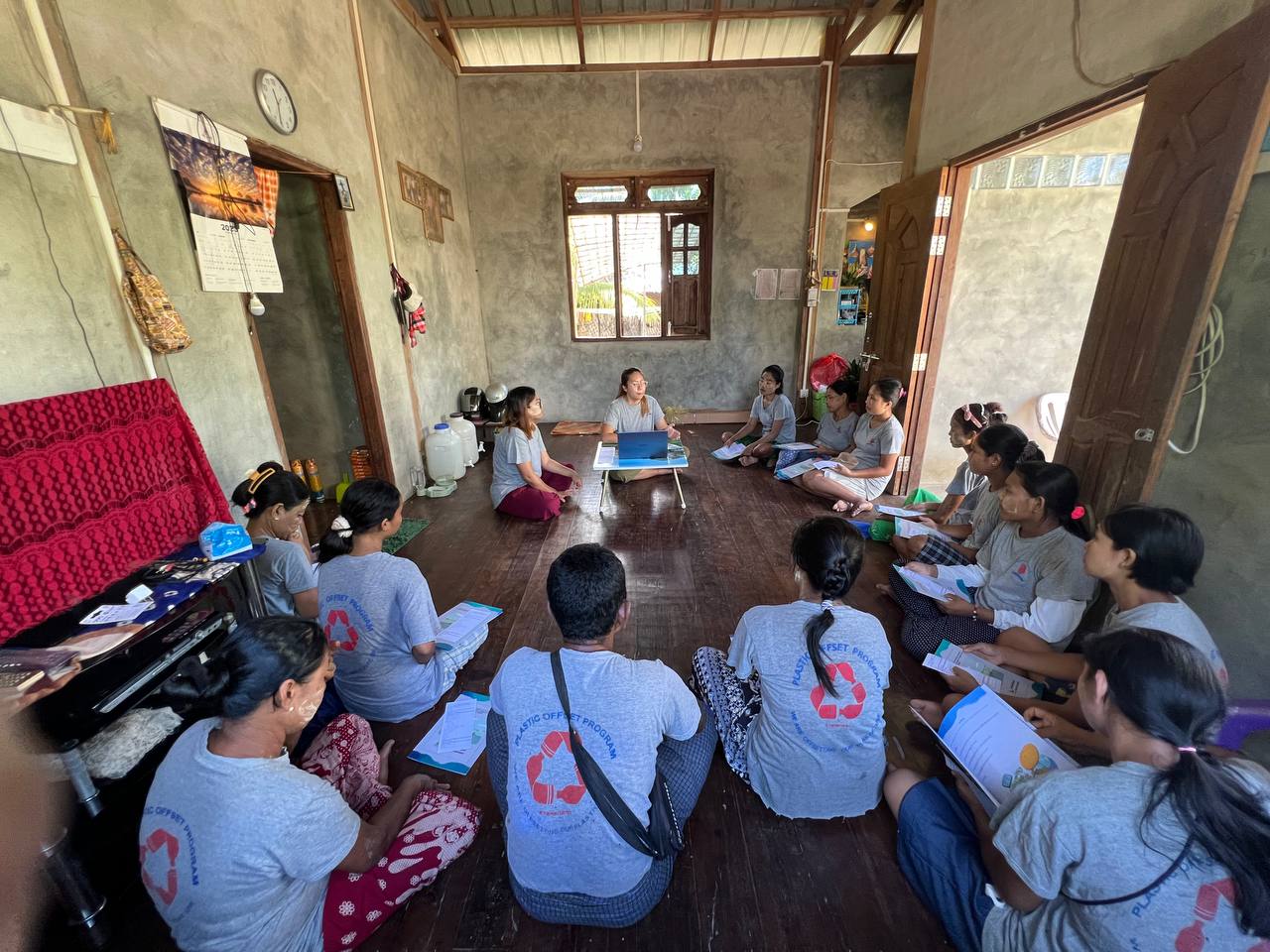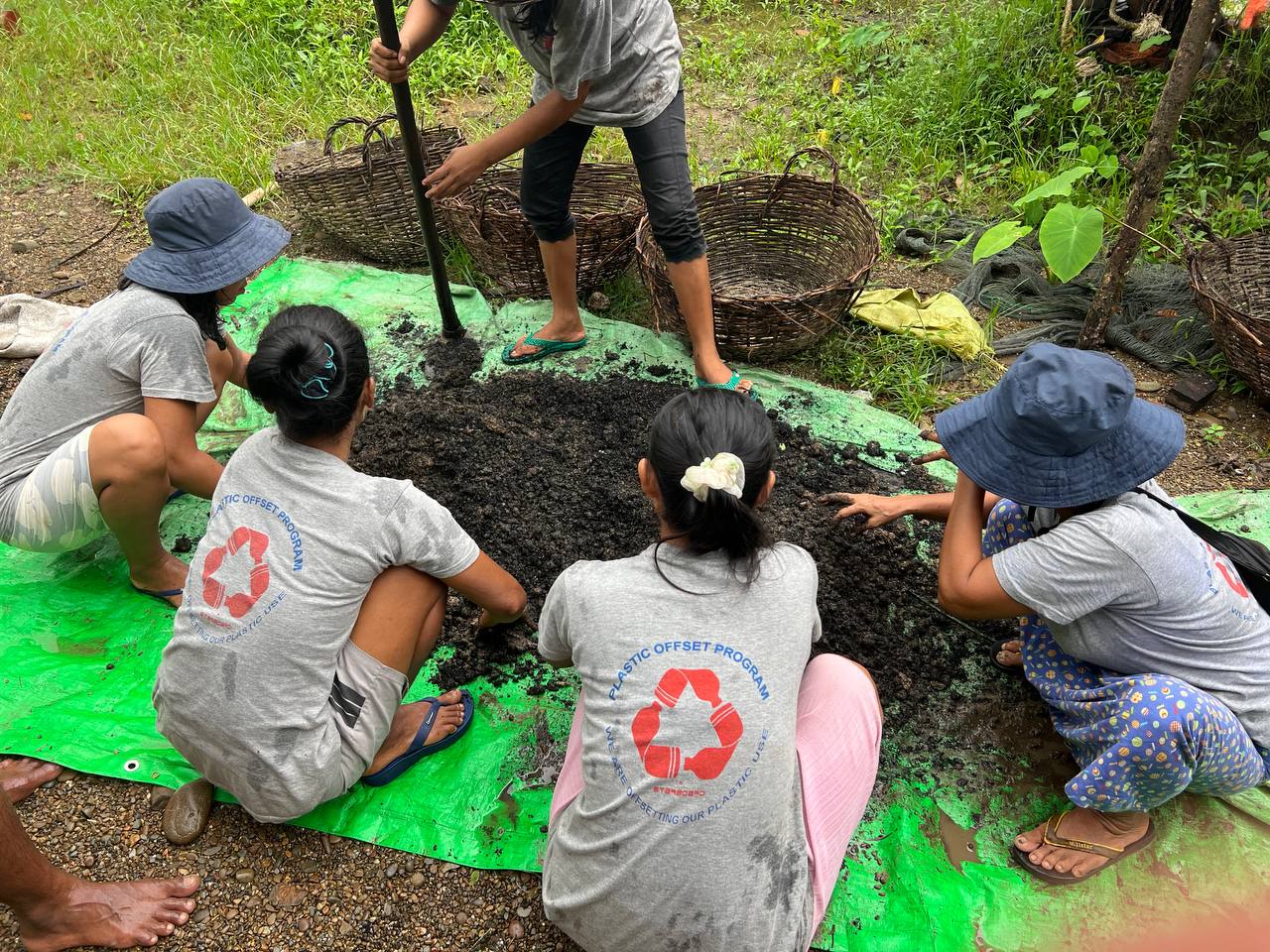As we navigate the challenges of sustainability, finding solutions that benefit both the land and its communities becomes paramount. One answer is to utilize natural fertilizers as a route to sustainable agriculture. At Starboard, we’re supporting farmers in Myanmar to embrace the benefits of Natural Fertilizers.
In 2018, we launched the Plastic Offset Program in Myanmar to clean up the beaches and preserve the beautiful environment. Today, we are extending the positive impact of our POP to the wider community, by supporting our collectors to diversify their income and employ more environmentally-conscious farming practices. Through sharing knowledge on organic farming methods, we are supporting our collectors to overcome the issues surrounding older techniques.
The Challenge of Conventional Agriculture:
Traditional farming practices often rely on synthetic fertilizers that, while providing a quick nutrient boost to crops, come at a cost to the environment. The runoff from these chemicals can contaminate water sources, harm aquatic life, and contribute to soil degradation over time. In our pursuit of a more sustainable future, it’s crucial to explore alternatives that nourish the soil without compromising the delicate balance of our ecosystems.
Enter Natural Fertilizers:
Natural fertilizers, derived from organic matter, offer a harmonious solution. They not only enhance soil fertility but also contribute to long-term environmental sustainability.
Here are some Eco-friendly alternatives that can be seamlessly integrated into Myanmar’s agricultural landscape:
- Compost: Turn kitchen scraps, yard waste, and agricultural residues into nutrient-rich compost. This dark, crumbly mixture not only enriches the soil with essential nutrients but also improves its structure, water retention, and aeration.
- Manure: Animal waste, properly composted, is a valuable source of organic matter. Livestock manure, when used responsibly, provides a potent blend of nitrogen, phosphorus, and potassium—the essential trifecta for plant growth.
- Cover Crops: Inter cropping with legumes and other cover crops helps fix nitrogen in the soil naturally. These plants act as green manure, enhancing soil fertility while reducing the need for external inputs.
- Fish Emulsion: For coastal communities, fish emulsion is a fantastic option. It’s made from decomposed fish, providing a nutrient-packed liquid fertilizer that supports plant growth and boosts soil health.
Positive Impact on the Environment:
By embracing natural fertilizers, we not only nurture the health of our crops but also safeguard the environment. Unlike synthetic counterparts, these alternatives promote biodiversity, reduce greenhouse gas emissions, and minimize the risk of chemical runoff into nearby water bodies.
One of the key advantages of natural fertilizers is their minimal environmental impact. Unlike chemical fertilizers that can leach harmful substances into water bodies, natural fertilizers enrich the soil without compromising its ecological balance. By opting for these organic alternatives, farmers in Myanmar are not only safeguarding their immediate surroundings but also contributing to the global effort to mitigate climate change.
Supporting the Community:
The positive impact of natural fertilizers extends beyond the fields. In Myanmar, where agriculture is a cornerstone of the economy, the use of natural fertilizers enhances community well-being. By reducing dependence on costly synthetic inputs, farmers can improve their economic resilience. Additionally, the focus on sustainable practices creates a ripple effect, empowering communities to take charge of their agricultural future.
Educational Initiatives:
In the pursuit of environmental awareness, educational initiatives play a crucial role. In Myanmar, organizations are working to educate farmers about the benefits of natural fertilizers and sustainable farming practices. These initiatives emphasize the importance of preserving the rich biodiversity of Myanmar’s landscapes, promoting a holistic understanding of the interconnections between the environment and agriculture.
How Starboard is helping.
At Starboard, we are working to bring all of these benefits to our POP collectors. Alongside the other POP education and livelihood projects, The Natural Fertilizer Livelihood Program aims to provide long-term employment opportunities to local communities, by helping them to start their own farms and encouraging them to adopt these natural fertilization methods.
Through workshops, demonstrations, and collaborative projects, we aim to empower communities with the knowledge and skills needed to make the transition to sustainable agriculture.
For example, the program shares how to make natural pesticides as well as organic fertilizers that are compatible with the region, which are better alternatives to the usual, harmful chemical alternatives.
As a result, the program is promoting sustainable agriculture, enhancing soil fertility, and improving farmers’ income through Eco-friendly fertilizers, vital for agricultural development and food security. Through diversifying their income source, we are empowering our POP collectors to become more financially independent.
A Sustainable Solution
Natural fertilizers are a cornerstone of sustainable agriculture. In Myanmar, where traditional farming practices have been deeply ingrained in the culture. The shift towards these Eco-friendly alternatives is gaining momentum. Farmers are embracing sustainable solutions that prioritize the long-term health of their land over short-term gains. This shift not only benefits the environment but also ensures the viability of farming practices for generations to come.
Embracing natural fertilizers in Myanmar fosters sustainable agriculture, ensuring soil health and crop yield. We hope this Eco-friendly choice not only benefits the environment but also uplifts local communities. By making the switch to natural fertilizers, we can contribute to a greener future while supporting the well-being of Myanmar’s farming communities.













